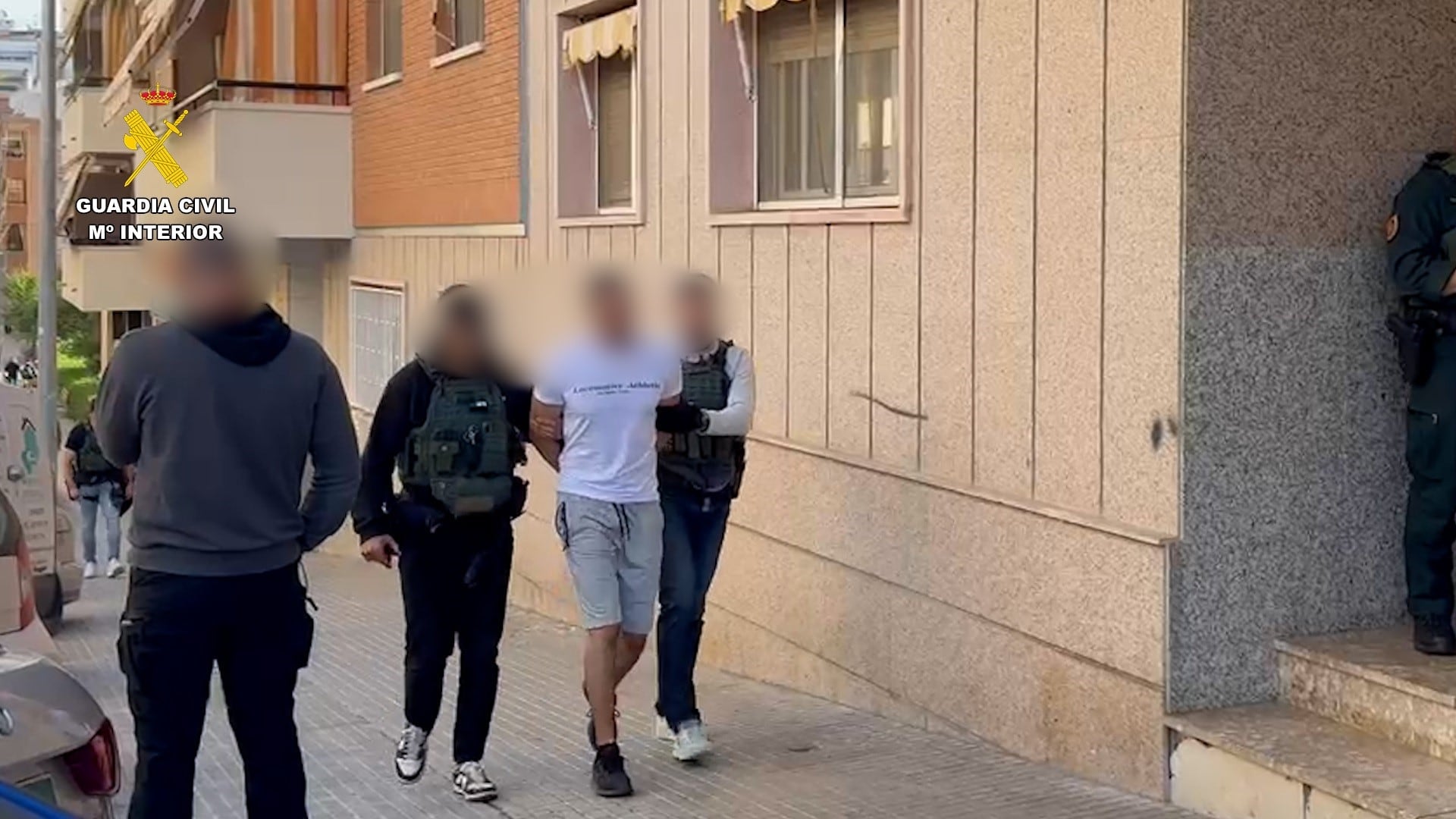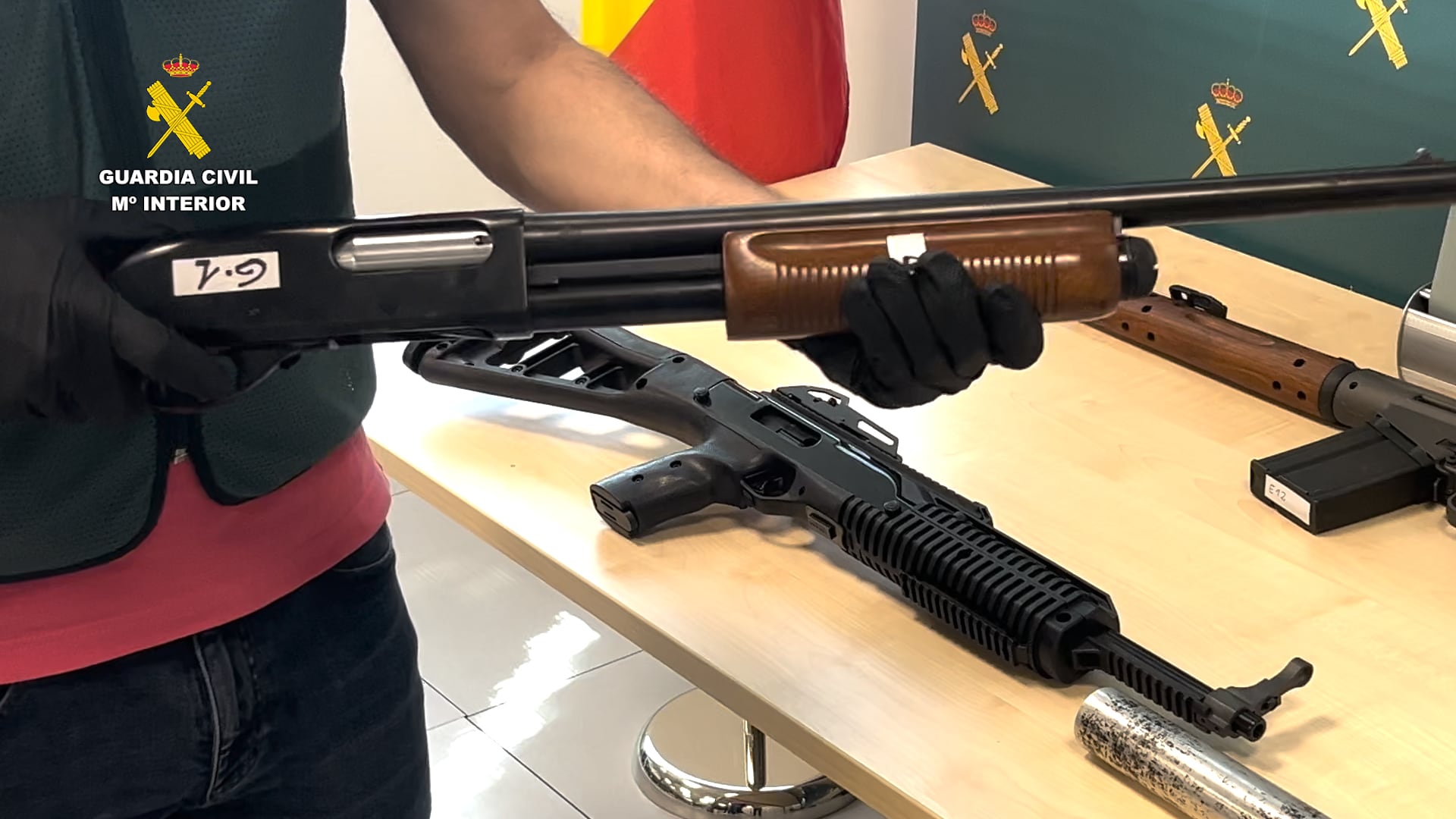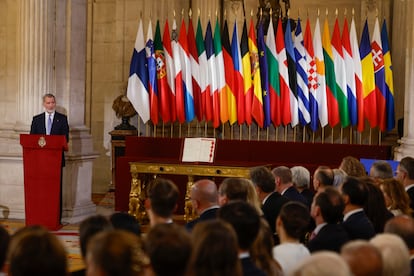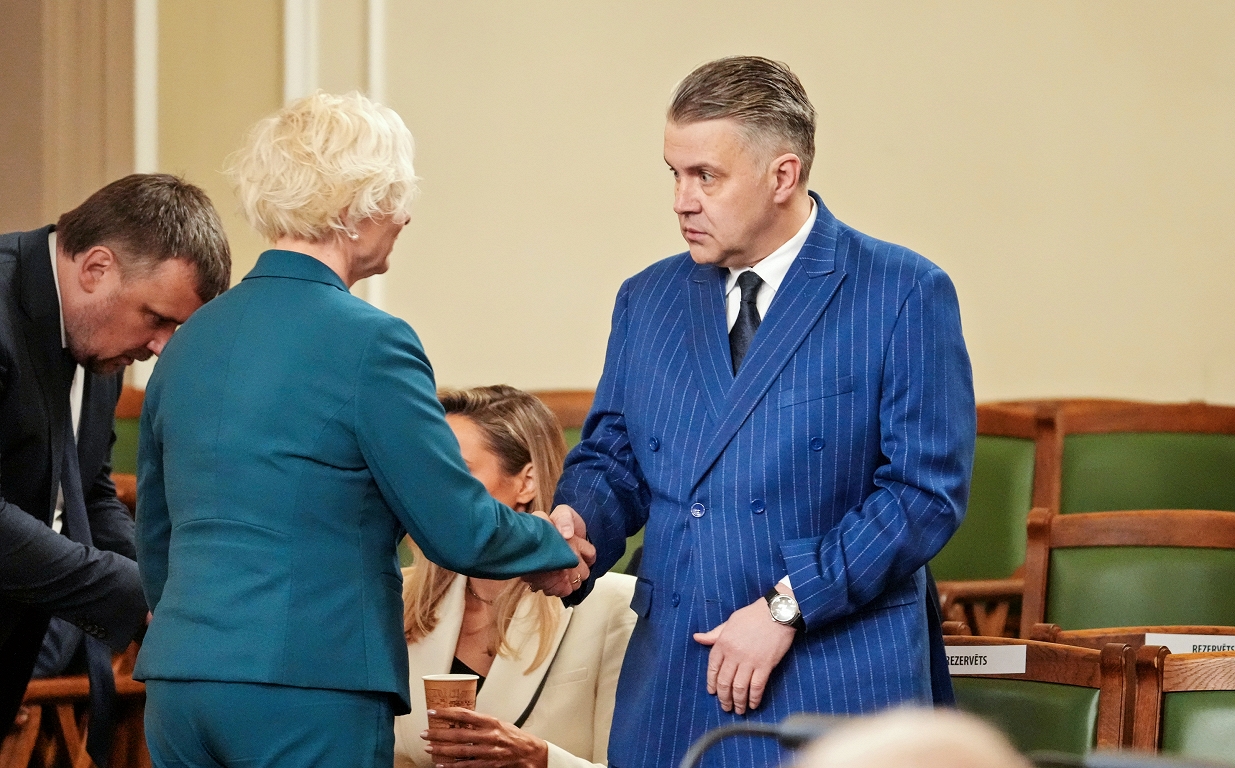The last detention for jihadism in Spain confirms the Islamist instrumentalization of the war in Gaza | Spain

The arrest, on May 26 in Castellbisbal (Barcelona, 13,000 inhabitants), of a 22 -year -old has served the Civil Guard to confirm the instrumentalization that is doing the jihadism of the war in the Gaza Strip to radicalize its followers even more. The detainee, of Spanish nationality and Maghreb origin, allegedly followed a process of self -addiction and autocation to commit attacks, but its extremism had increased precisely by propaganda that spread over this war conflict, among other groups, the Islamic State (ISIS in its acronym in English). « The detainee had internalized appeals in favor of the violent struggle, » highlights a note from the reinforced institute released on Tuesday to inform the arrest.
In this radicalization process, the young man traveled, at the beginning of 2024, to a country in the European Union to carry out practices with an assault rifle in a shooting gallery before the impossibility of doing so in Spain, where the legislation is stricter. The analysis of the electronic equipment that was intervened during the arrest has also confirmed their interest in the weapons of war and the necessary information to be able to use them, although at their home, which he shared with his family, no weapon was intervened, as detailed by sources close to the investigation. The arrested has entered prison by order of the Judge of the National Court Ismael Moreno.
Sources of the anti -terrorist struggle emphasize that, from the outbreak of the war in Gaza in October 2023, the increasing use of this conflict as a “catalyst” element by the jihadist groups, which use it to reinforce the message that Muslims supposedly face a threat that justifies the use of violence in legitimate response, has been verified. This trend has been reflected, for example, in a considerable increase in the social networks of individuals who support the commission of attacks.
All this has also translated into an upward trend in the number of antiyihadist operations since in October 2023, When the Ministry of Interior had to accelerate many of the investigations that had open on suspects of radical Islamist activities in fear that the conflict was pushing them to attempt. In fact, since the war broke out and on December 31 of that year, less than three months, the security forces arrested 54 alleged jihadists, when in the immediately previous nine months 24 people had been arrested for these crimes, according to official statistics. The year ended with 78 arrests against 46 throughout 2022.
Since then, the number of anti -terrorist operations has remained in very high figures. Thus, in 2024 there were 81 arrests (the third year with more arrests, only surpassed by 2004, that of the 11-M attacks, and 2005) and in the first five months of this year there are already 66 arrests. In total, from the outbreak of the war in Gaza, the security forces have arrested in Spain alleged Islamist terrorist.
It is also linked to the conflict in Gaza Detention in April in Murcia de Alka 22 -year -old philosophy student accused of being The alleged perpetrator of the anti-Semitic attack suffered on March 4 at the restaurant-pizzzería Rimmon Kosher from Madrid, in which the place with customers inside was tried to set fire. The police consider this event as the first violent act of a philotorist nature committed in Spain against the Jewish community since the beginning of the war since the detainee allegedly acted as retaliation for the Israeli invasion of the strip.
After the outbreak of the war between Israel and the Palestinian Group Hamás, Spain reinforced – like the rest of the EU countries – the prevention, protection and anti -terrorism response measures within the current level 4 of an anti -terrorism alert, “high risk” – in vigor since June 2015 -, on the existing five. Among them was an increase in security in different diplomatic legations in Spain, such as those of Israel, Turkey, Palestine, Lebanon and Jordan, as well as in other “strategic, cultural and economic interests” of these countries.
Anti -terrorist preventive measures were also reinforced in the embassies of the 26 EU countries, with special attention to those of France, Sweden and Denmark. Other diplomatic representations that saw how their security were increased were those of the United States and the United Kingdom, as well as their « educational, economic or any kind. »








:format(webp)/s3/static.nrc.nl/images/gn4/stripped/data133531223-1fbb38.jpg)